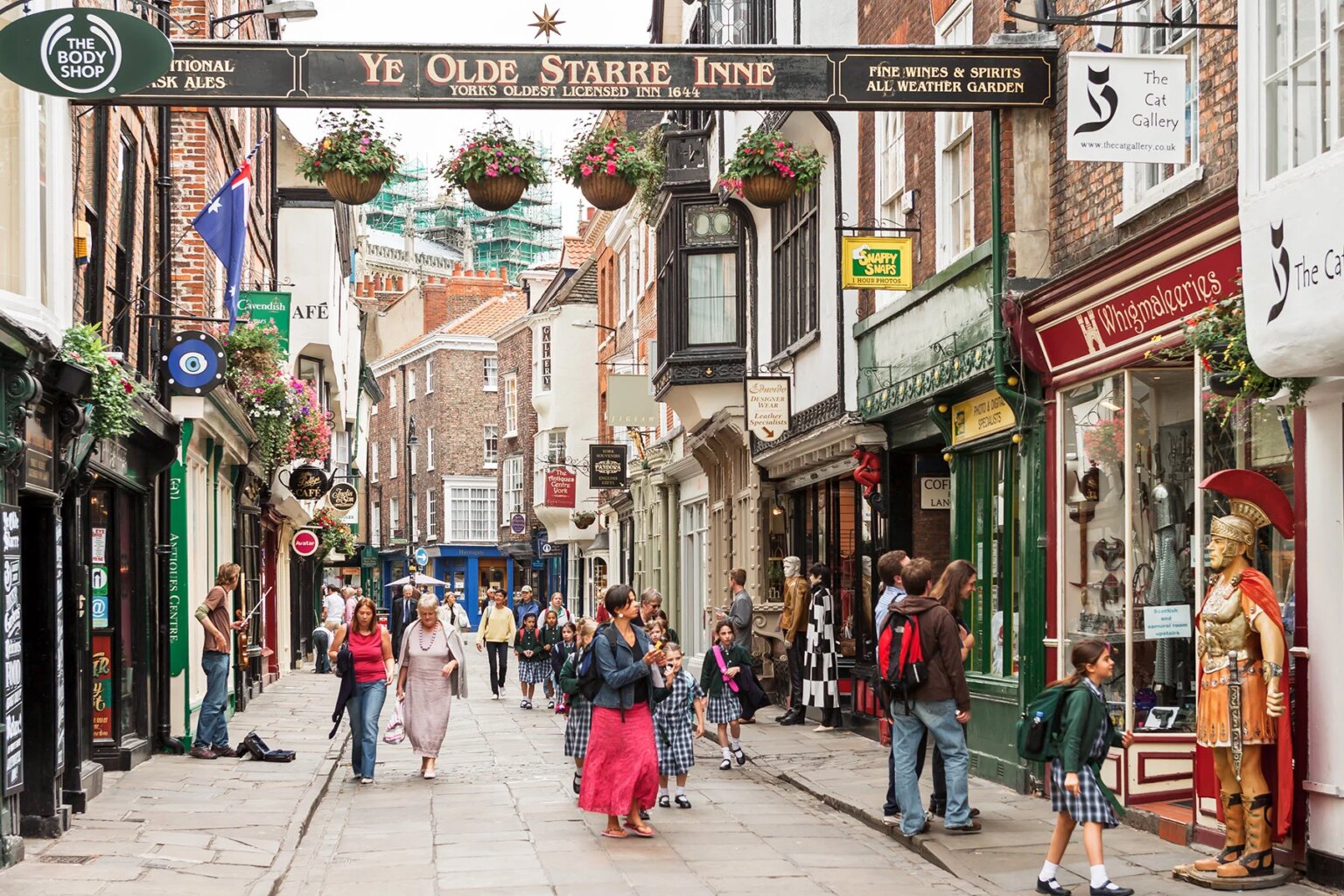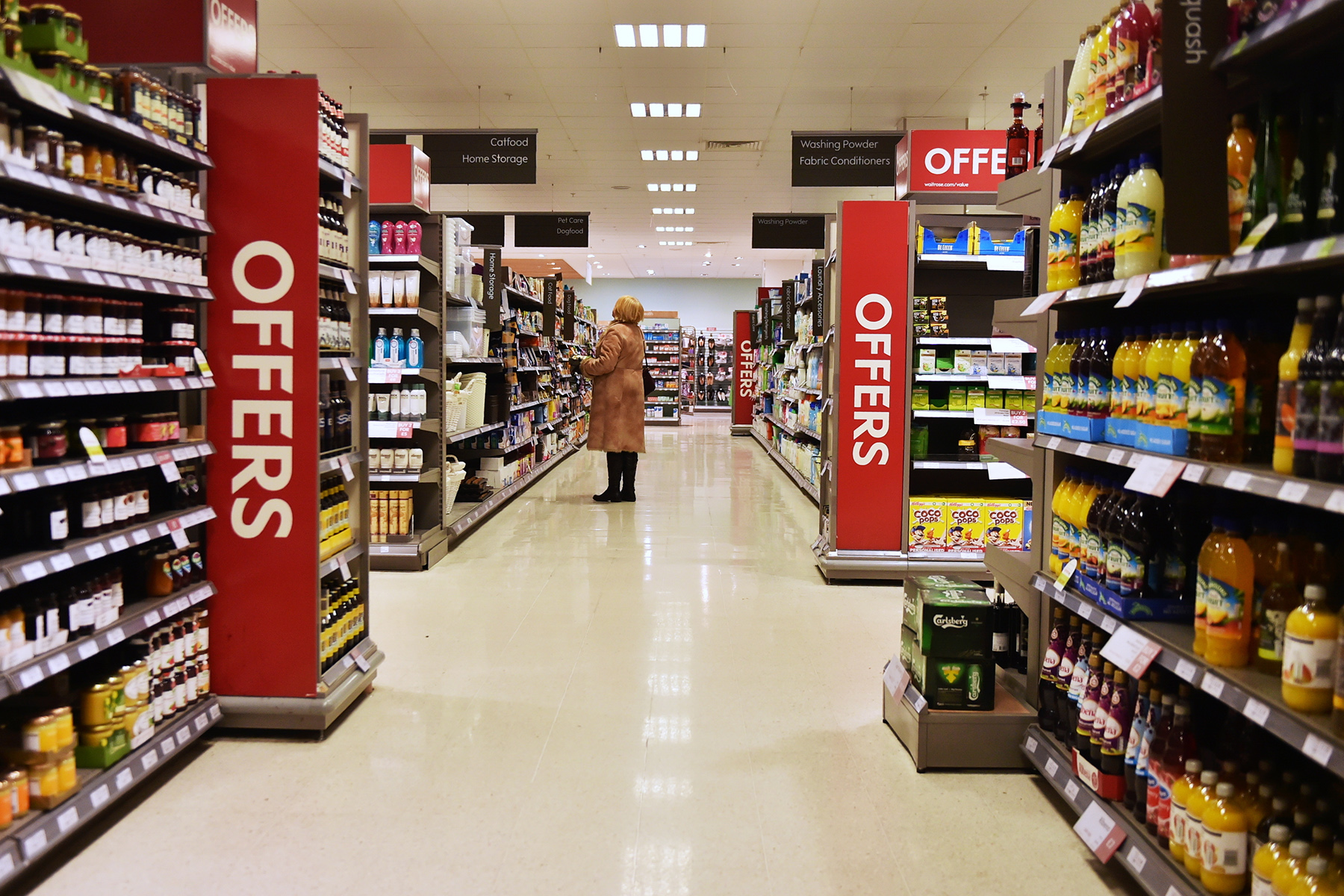As any expat will attest, knowing where to buy certain goods in your new home can be challenging. Our guide to UK supermarkets can help you find food. But what about all those other essentials for your new life in the United Kingdom?
Without the brands you’re used to, you might not know the best place to pick up paint, your favorite shampoo, or home furnishings. To help you understand shopping in the UK, this guide provides the following information:
An overview of shopping in the UK
Traditionally, shopping in the UK centered on the high street; the main route through towns and cities across the country. In and around these streets, you’ll still find a mix of shops, cafés, pubs, and other entertainment such as cinemas. These town and city centers have good public transport links and easily-accessible car parks.
However, in recent decades some retailers have been relocating out of central areas to purpose-built retail parks on the edge of town. Here, you’ll find many big-box retailers like furniture, DIY, and electrical stores alongside fast-food restaurants. Some cities also have regional shopping malls on their outskirts, such as Sheffield’s Meadowhall and Manchester’s Trafford Centre. These include many national and international fashion retailers among other leisure attractions.
Generally speaking, stores in the UK open around 08:00 or 09:00 and stay open until 17:00 or 18:00 on weekdays and Saturdays. In rural areas, stores may close Wednesday and/or Saturday afternoons, although this practice is dying out. In larger towns and cities, you’ll find most stores open later, until around 21:00. Public transport and car parking fees are generally cheaper in the evening; this can be a great way to save money. UK trading laws restrict the Sunday operating hours of the vast majority of shops in the UK. Don’t be surprised to see even the largest department stores or DIY warehouses closing at 16:00 or 17:00 on Sunday.
Department stores in the UK
Department stores in the UK sell a wide range of products, from clothes and accessories to household electronics and sports equipment. Some even sell food and many have restaurants, cafés, and bars for shoppers. Traditionally, department stores are found in prominent city center locations, however, some also have stores in out-of-town retail areas.
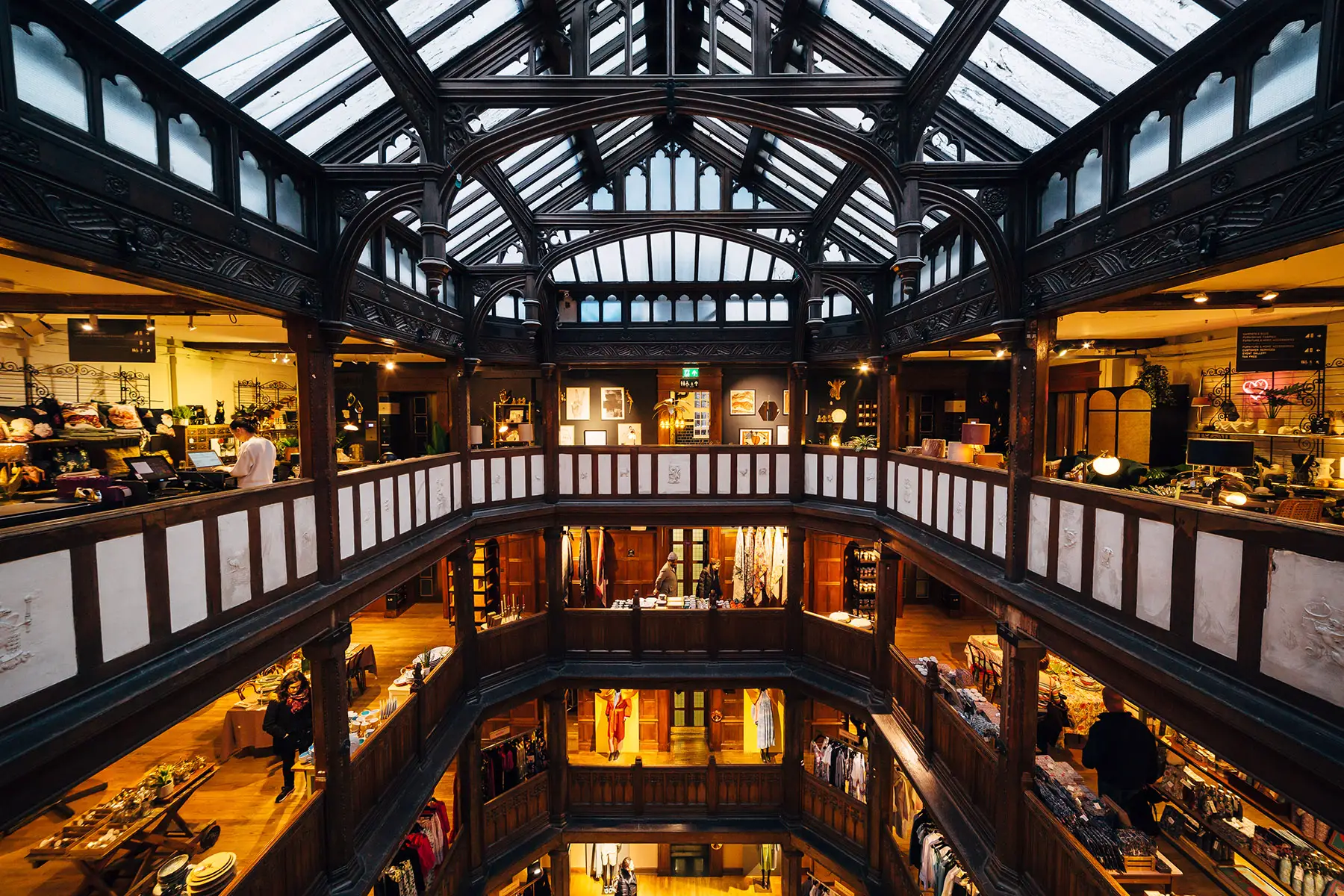
For many expats, UK department stores will conjure up grand London outlets selling everything you could possibly want to buy. World-famous names like Harrods and Liberty attract visitors from all around the world. However, the capital is also home to the flagship stores of Selfridges, Harvey Nichols, John Lewis, and Marks & Spencer, among others.
Outside London, Selfridges has stores in Manchester and Birmingham, while Harvey Nichols can be found in Leeds, Edinburgh, and elsewhere. John Lewis has 48 locations across the country, while Marks & Spencer operates around 300 department stores. Other UK department stores include Debenhams, House of Fraser, and Primark. Regional and independent department stores can also be found across the country.
Clothes, shoes, and accessories
All large towns and cities in the UK have a main retail area in the center where you’ll be able to find a range of clothing stores offering men’s, women’s, and children’s fashion. In larger urban areas, you’ll find well-known international fashion retailers, including H&M, River Island, Uniqlo, Next, and Zara, alongside department stores selling clothing. In smaller towns, you’re unlikely to find these international retailers, although there will be local options.
The range of clothing and shoe stores available varies significantly between towns. For the best selection, you may need to travel to larger regional centers where you’ll find various footwear and fashion outlets for all budgets. In many cities, you’ll also find higher-end outlets such as Louis Vuitton and Urban Outfitters, as well as cheaper retailers like Primark, TK Maxx, and Peacocks. Some larger, out-of-town supermarkets also sell clothing.
Sports and leisure
When it comes to sports and leisure pursuits, you’ll find yourself spoilt for choice in the UK. Whether you prefer exploring the rugged mountains of Scotland or playing tennis at your local neighborhood courts, you’ll probably want to stock up on the latest gear at your nearest sports and leisure store.
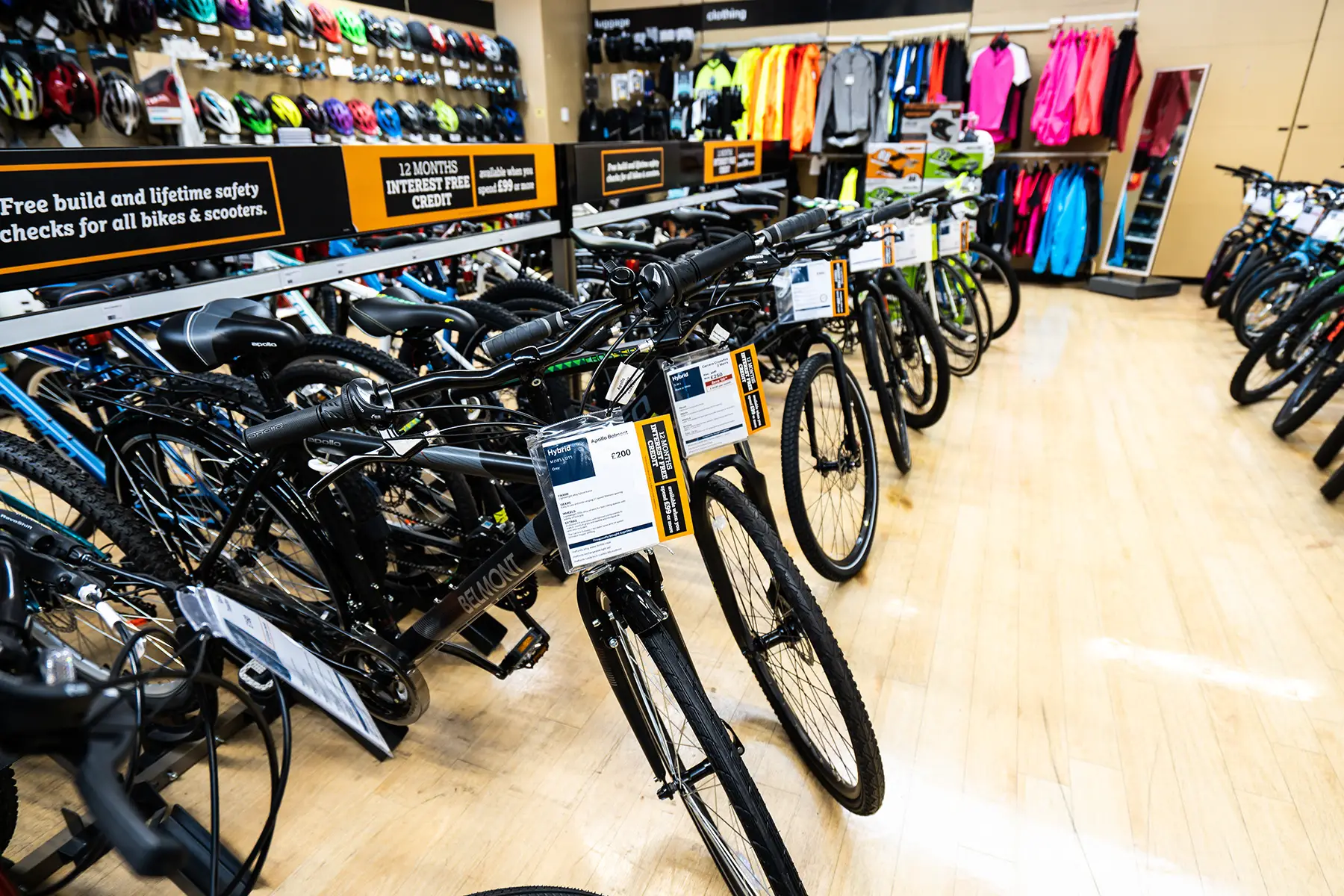
Traditionally, these stores were run independently and many of these remain individually-owned across the UK. However, there are a handful of nationwide chains, including Sports Direct and Decathlon, which sell sports equipment and leisurewear. Some of these stores can be found in central areas, however many are located in out-of-town retail parks.
If you’re a keen cyclist, the biggest national chains are Evans Cycles and Halfords, which also sells camping equipment and car parts and accessories. However, the vast majority of cycle shops in the UK are independent, so search online for your local outlet. These stores should also be able to provide you with information on local cycle routes and clubs.
DIY, home, and garden
Thinking about doing some DIY? The British are a nation of DIY-ers, and the biggest nationwide hardware chains are B&Q, Homebase, and Wickes. Alongside DIY goods, these also sell affordable kitchens and bathrooms. Generally speaking, these stores are in out-of-town retail parks, although some are finding their way to the high street. Also on the high street is Robert Dyas, a hardware store that sells a range of household goods.
If you’re looking for furniture, the Swedish retailer IKEA has around 20 stores across the country. Other furniture stores include Furniture Village, and Harveys, as well as many independent and regional retailers. For carpets, Carpet Right is one of the leading retailers. However, many of the leading UK department stores sell home furnishings at competitive prices, including John Lewis and Marks & Spencer. If you want to start your own DIY project, or need help putting together your flatpack furniture, there are even online marketplaces, such as TaskRabbit, where you can find someone to give you a hand.
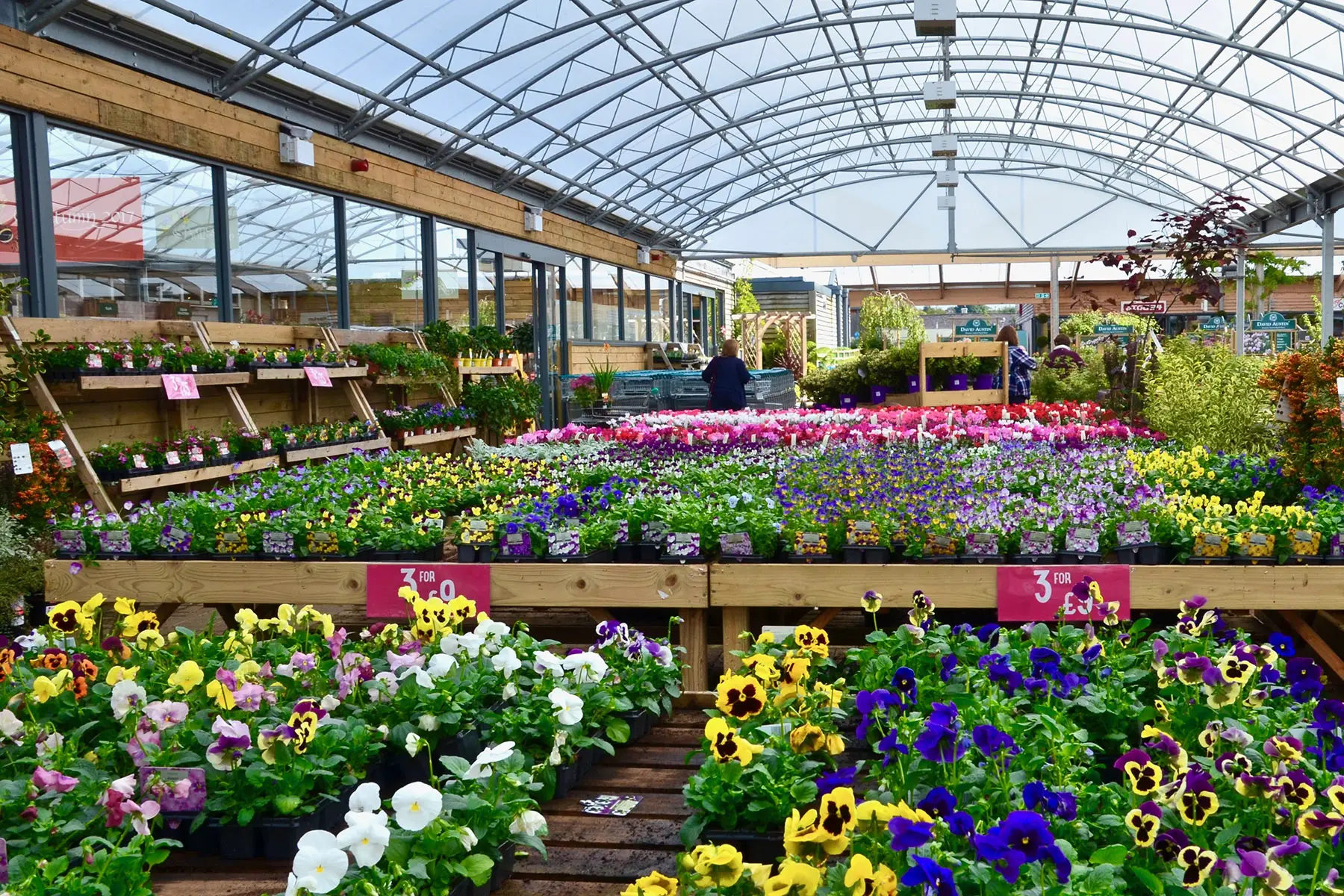
Gardening remains ever-popular in the UK. While most hardware stores like B&Q and Homebase have an outdoor section, even small market towns are likely to have at least one garden center. These centers are often sprawling stores selling everything from plants and flowers to heavy outdoor machinery and even pet supplies. Many also have cafés, allowing visitors to make a day of it.
Books, magazines, and stationery
As the home of William Shakespeare and Charles Dickens, you’d expect the UK to have plenty of bookstores. And you’d be right. The UK has a healthy selection of shops, including many independent retailers that have been trading for decades.
WHSmith is also a leading retailer of magazines, stationery, and office supplies, with stores in towns and cities across the country. Another high-street store stocking books and gifts would be Paperchase, while most supermarkets and household stores also sell a range of school supplies, stationery, and other home office equipment.
Electrical and technology
Looking for some modern gadgets for your home? Finding technology from around the world is fairly straightforward in the UK, whether you need the latest TV or a brand new lawnmower. Most large supermarkets sell a range of basic household electronics (including TVs, printers, and more), while department stores like John Lewis stock a broader range of electric items, such as fridge-freezers, ovens, and more.
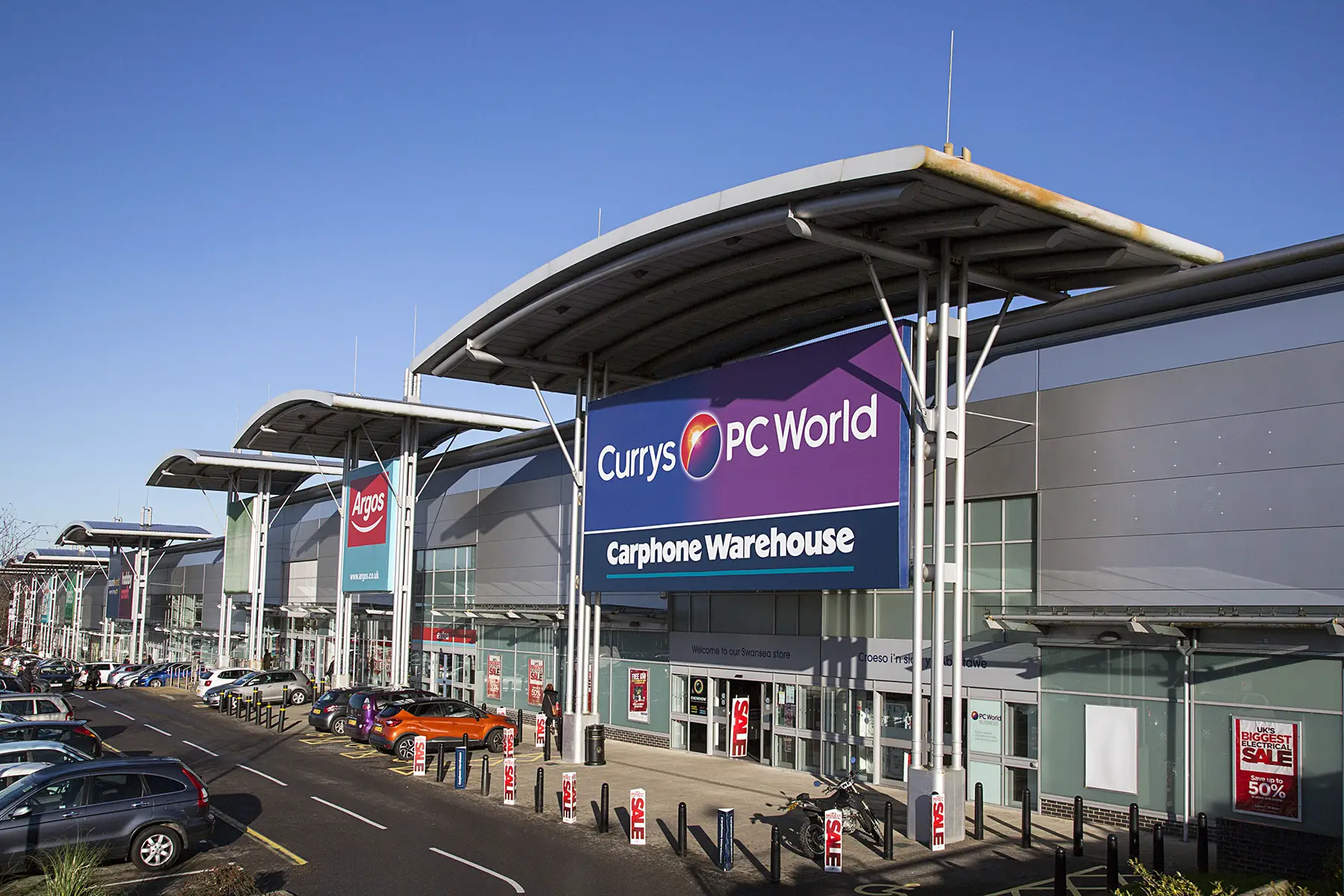
If you’re looking for a dedicated electronics store, try Currys PC World or Euronics. Alternatively, catalog-based retailer Argos sells a range of electrical items, among its wide array of other products. For audio goods, like headphones and speakers, a specialist store is your best bet. If you’re looking for mobile phones, you’ll find individual stores of the largest manufacturers and operators in most large towns and cities.
Health and beauty
Although the British aren’t as image-conscious as some of their European cousins, you might still want to look your best. As well as being one of the UK’s leading pharmacy chains, Boots also sell a range of health and beauty products, as do high-street rivals Superdrug and Bodycare. Department stores also have beauty sections where you’ll be able to stock up on products and even get a makeover. Alternatively, international retailers such as Lush can also be found across the UK.
If you’re looking to stay healthy inside and out, you’ll be pleased to know that the health food market in the UK is growing quickly. Holland & Barrett have over 700 stores across the country, offering a range of health and organic products. However, many health stores are independently-owned, so search online for your nearest outlet.
Children’s clothes and toys
If you’ve got little ones at home, you’ll need to know where you can buy kids clothes and toys in the UK. Thankfully, most UK department stores sell children’s clothing, as do many large supermarkets. Clothing for kids is generally quite cheap in the UK as it isn’t subject to VAT charges, so don’t be put off by any surprisingly inexpensive items.
For toys and clothes for babies and toddlers, check out Boots, Mamas & Papas, and Argos. Argos also sells a wide range of toys for older children, while stores including The Entertainer and Smyths can be found in most large towns and cities. For an unforgettable day out, take your little ones to the UK’s most famous toyshop, Hamleys. Located on London’s Regent Street, the iconic shop boasts seven floors of toys and games and is not far from the LEGO store or Disney store.
